
Cedrus libani 'Glauca Pendula' Blue Weeping Cedar of Lebanon Kigi Nursery
Cedrus deodara is a species of cedar native to the Himalayas. It is an evergreen conifer with a large, conical crown and blue-green needles. The cedarwood is oily and resinous, and was used in ancient times for incense and perfumes.. Cedrus deodara Pendula has weeping branches, and dense and blue needles. Cedrus deod; Source:.

cedrus deodara pendula Cedrus deodara, Conifers, Plants
Description Spreading shrub to groundcover with tumbling, pendulous growth. Best to stake when young. If not trained to grow upwards, it will naturally grow into a broad, spreading plant with its spread broader than its height. Its weeping, spreading habit lead to it being chosen as a plant growing in a solitary situation.

Cedrus deodara 'Pendula', HängeHimalayaZeder 'Pendula'
Cedrus deodara aurea 'Pendula' makes a magnificent small weeping tree suited to both large and smaller gardens or perhaps growing in a rock garden.

Photo 23426 Cedrus deodara 'Aurea Pendula' plant lust
The deodar cedar ( Cedrus deodara) is an evergreen conifer tree favored for its weeping habit (gracefully drooping branches) and pyramid shape. It is often used as a specimen tree in parks and other large gardens and can also be used to line streets. A dwarf variant, 'Snow Sprite,' was also developed for bonsai cultivation.
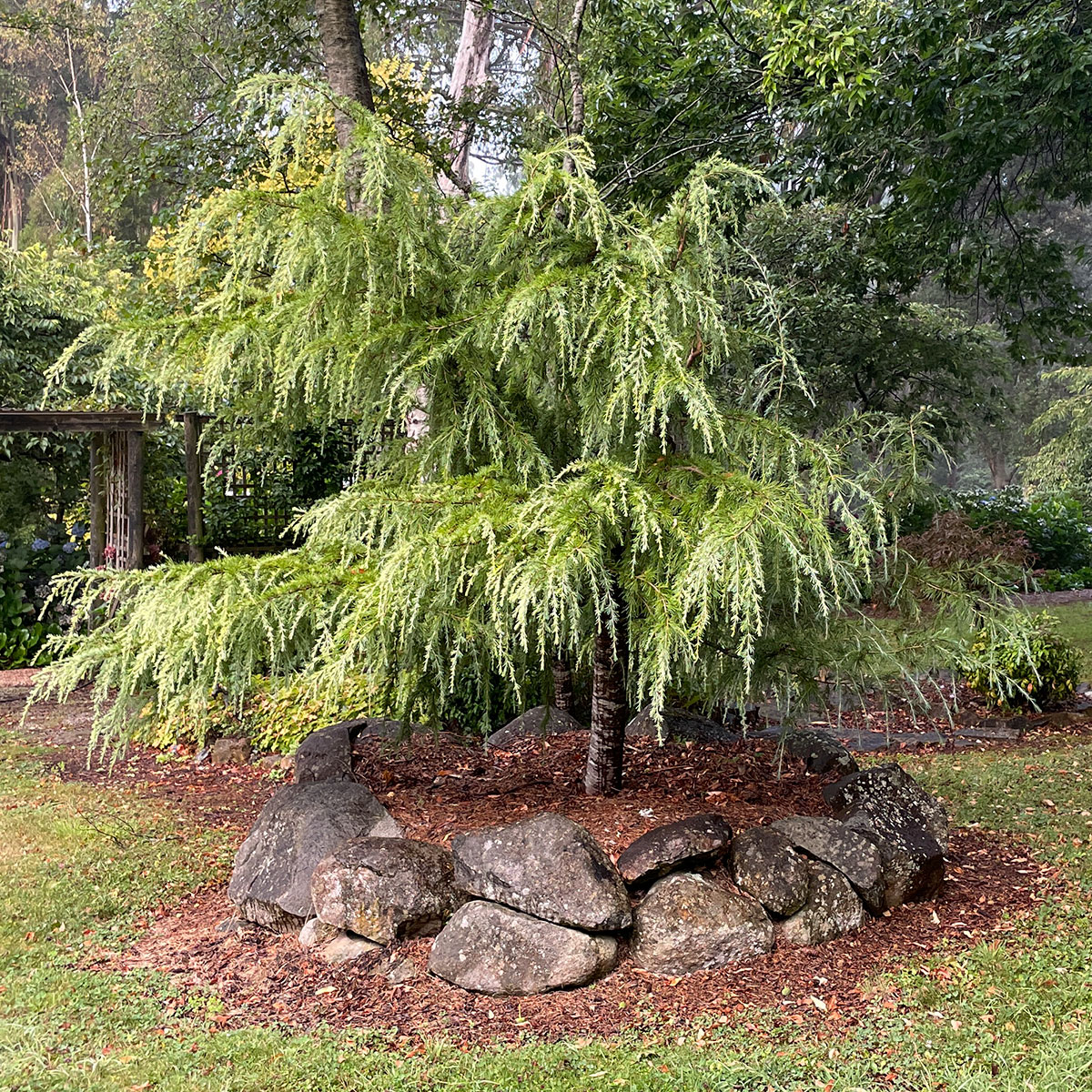
Cedrus deodara aurea 'Pendula' A small weeping tree.
Family Name: Pinaceae Botanical Name: Cedrus deodara Sub Species: Variety: Forma: Cultivar: Characteristics: Cedrus deodara is a popular evergreen with a pyramidal shape and horizontally arranged branches that droop gracefully at the tips (1,2,3,4,5).
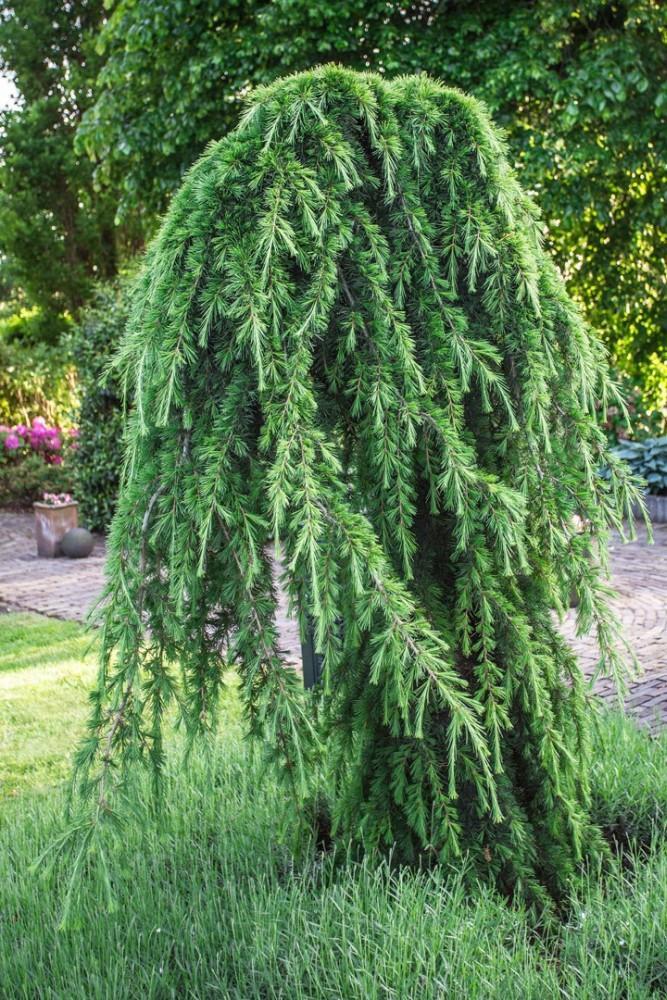
Cedrus deodara 'Pendula' FOJA Landscaping
Deodar cedar is a fine textured evergreen tree in the Pinaceae (pine) family native from Tibet to Afghanistan. Its form is broadly pyramidal when young; its pendulous or weeping branches become wide and spreading, as its central leader often dies out.

Cedrus deodara 'Pendula'
The right time to plant Cedrus deodara 'Pendula' is during the dormancy period. In Western Europe, Cedrus deodara 'Pendula' with root balls can generally be planted from mid-November to late April, although this depends strongly on the climatic conditions and the species of tree.
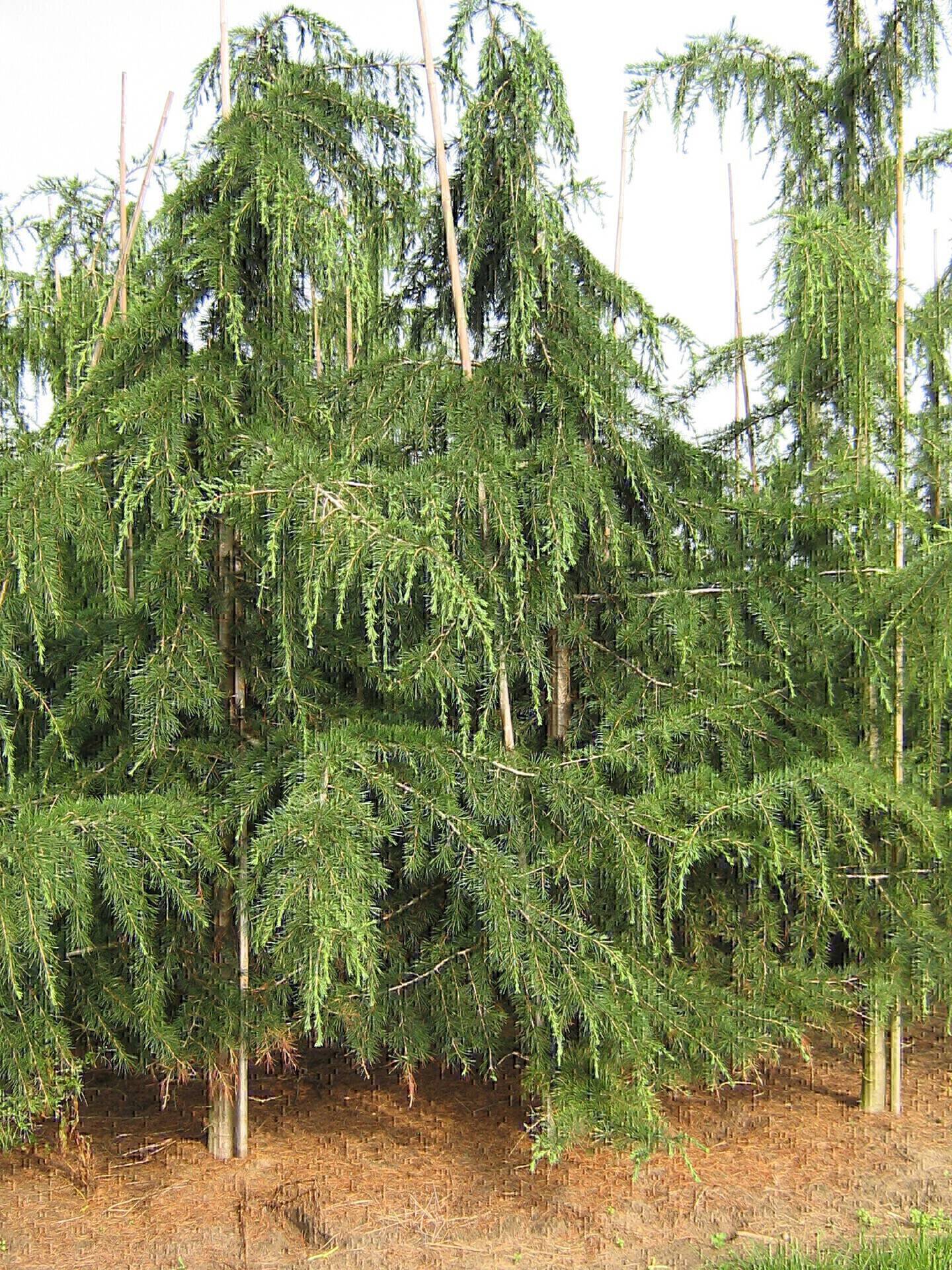
Cedrus deodara 'Pendula' Treurceder Den Mulder Boomteelt
Buy this plant Plant nurseries 3 suppliers Size Ultimate height 4-8 metres Time to ultimate height 10-20 years Ultimate spread 4-8 metres Growing conditions Loam Chalk Sand Clay Moisture Moist but well-drained, Well-drained pH Acid, Alkaline, Neutral Colour & scent Position Full sun

Cedrus deodara ' Pendula ' Weeping Himalayan Cedar Kigi Nursery
Cedrus deodara, know as Deodar cedar, is an evergreen conifers that is pyramidal when young, maturing to flat-topped trees with broad-spreading horizontal branching. Deodar cedar is perhaps the most pendulous of the true cedars, with drooping branchlets and branching that is gracefully drooping at the tips.
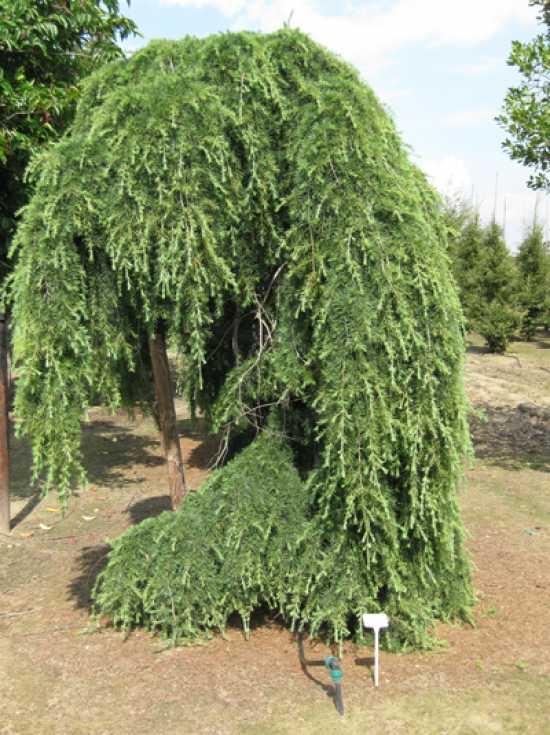
Cedrus deodara 'Pendula' / HängeHimalajaZeder günstig kaufen
Cedrus deodara, Chail (2250m), Himachal Pradesh, India, October 2017. Image Gaurav Verma. Tree typically 40-50 m tall, 2.5-3.5 m dbh, exceptional examples occasionally larger, to 65 m × 4.5 m. Trunk usually monopodial, terete, sometimes forked with multiple co-dominant trunks forming in the upper half.

CEDRUS DEODARA 'PENDULA'
Looking For Cedrus Deodara Pendula? We Have Almost Everything On eBay. Fast and Free Shipping On Many Items You Love On eBay.

Cedrus deodara Pendula extra Cedr himalájský převislý vzrostlý strom
Botanical details Family Pinaceae Native to the UK No Potentially harmful Genus Cedrus Genus description Cedrus are large evergreen trees with needle-like leaves arranged spirally on young shoots, and in whorls on short spur-like side-shoots; ovoid cones break up to release the seeds while still attached to the tree Name status Not established
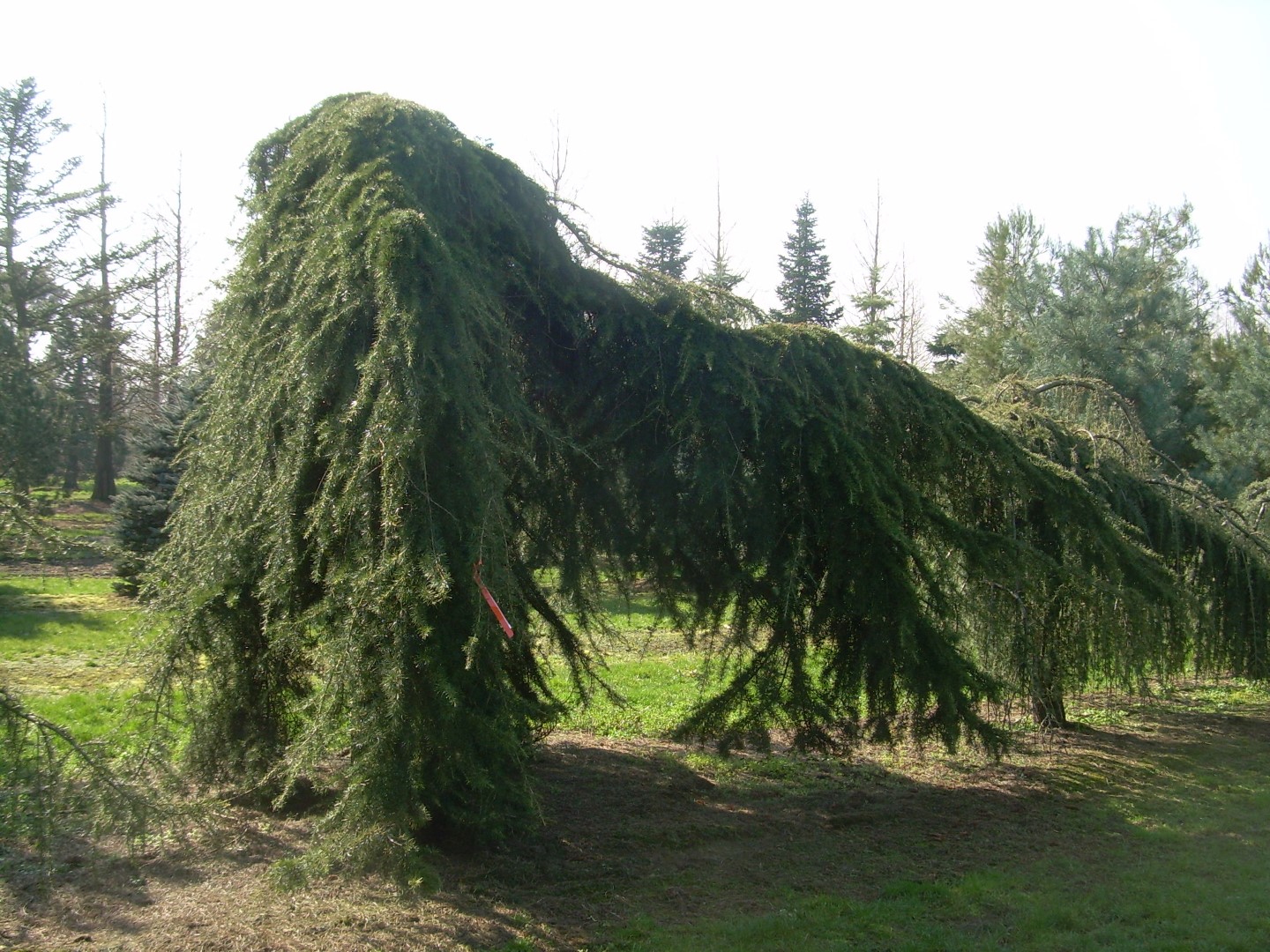
Cedrus deodara ‘Pendula’ Kiefer Nursery Trees, Shrubs, Perennials
Cedrus deodara Pronunciation: SEE-drus dee-oh-DAR-uh SKU #02335 7-11 Your climate might be too cold for this plant: Change Location Find In Store OVERVIEW DETAILS STYLE CARE Care Grows easily in a wide range of soil types; avoid poorly drained, soggy sites.
/135586443-56a98cad3df78cf772a82e11.jpg)
Growing the Deodar Cedar (Cedrus deodara)
6-9. Plant Size. #1 Container, #3 Container, #7, 30-36". Your auto-detected zip code. hardiness zone based on zip code. You can also try another zip code. Submit. Cedrus deodara 'Pendula' Himalayan Cedar is a dwarf, prostrate Himalayan Cedar that is often staked upright with limbs that hang down. Shop now!
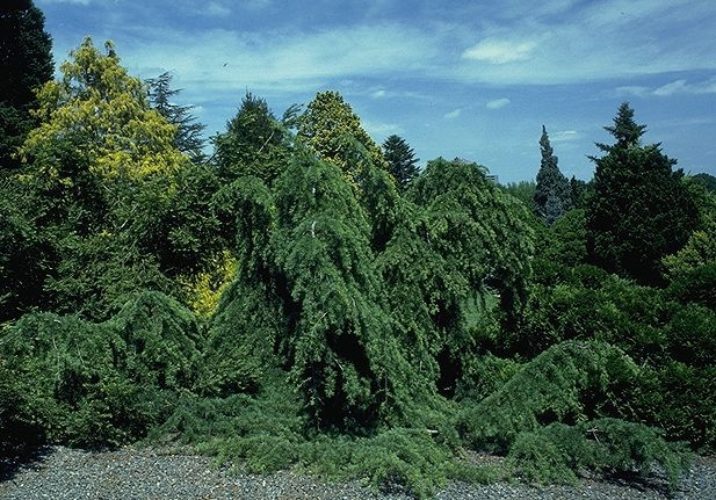
Cedrus deodara 'Pendula' / Weeping deodar cedar Conifer Trinomial American Conifer Society
Cedrus deodara: Deodar Cedar 1. Edward F. Gilman and Dennis G. Watson 2.. 'Aurea'—yellow leaves (looks ill); 'Pendula'—long, drooping leaves; 'Robusta'—stiffer twigs. Pests and Diseases. No pests or diseases are of major concern. Perhaps scales, borers, deodar weevils, and bagworms. Following a cold winter, tops often decline and.
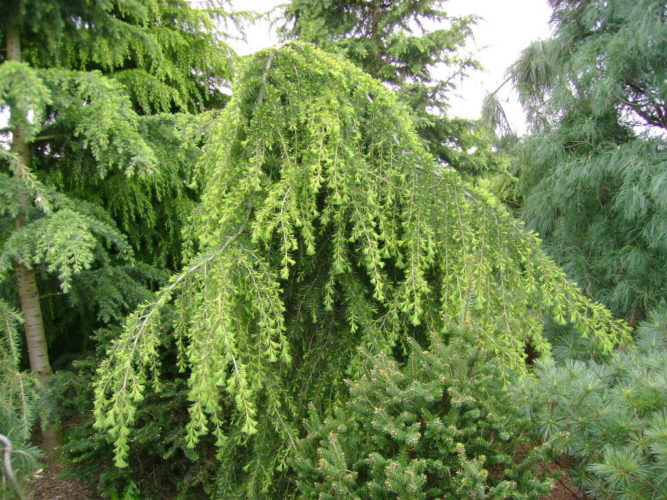
Cedrus deodara 'Pendula' / Weeping deodar cedar Conifer Trinomial American Conifer Society
Cedrus deodara 'Pendula' - Weeping deodar cedar. Family Cupressaceae Description: Four species of Cedrus are native to Europe and Asia. They are tall conifers. The deodar cedar is an important timber tree in the Himalayas. It is cultivated for its attractive form and evergreen foliage. Some forms have been selected for blue-gray foliage color.